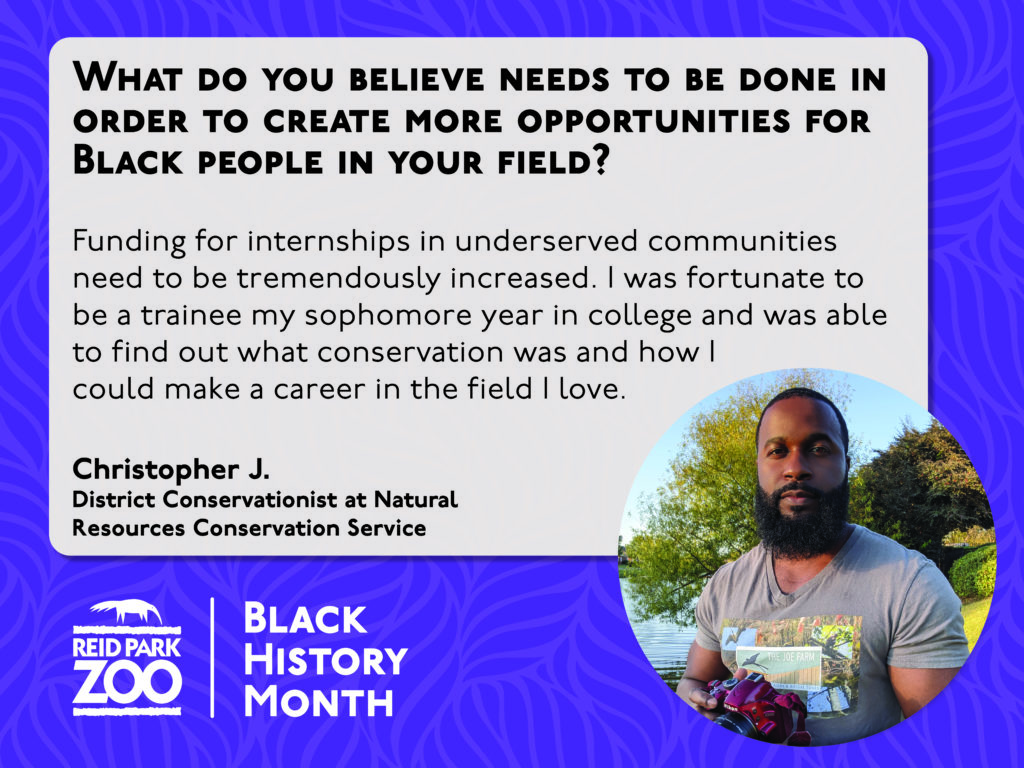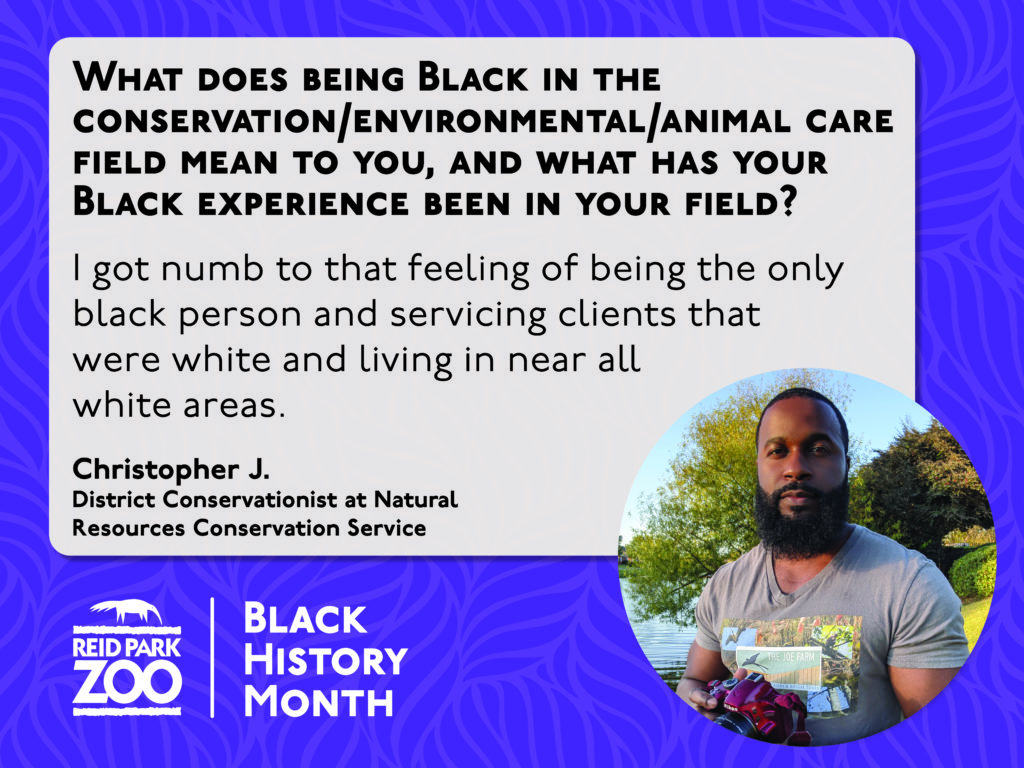Black in Nature: Featuring Christopher Joe

This post is part of “Black in Nature: Tackling Diversity in Conservation,” a Black History Month series giving Black people who work in animal care and conservation a platform to share their experiences and spark the conversation necessary for change. Learn more here.
Christopher Joe is a farmer and district conservationist from Alabama. With 200 acres of land at his disposal, The Joe Farm: Connecting with Birds and Nature Tours welcomes guests from far and wide to immerse themselves in nature and enjoy the native species of plants and animals that Joe’s farm has to offer.
Connecting guests with wildlife is important to Joe. “The biggest challenge [in protecting wildlife and wild places] is identifying habitat that once destroyed will negatively affect the wildlife to the point of peril. We have to not let the drive of development get to destroy areas without the thought of what may be in jeopardy once removed.” Joe’s efforts have created opportunities for his community to connect with their wild neighbors, but these opportunities are not always awarded to those in marginalized communities.
As a third generation Black Angus Cattle farmer and enthusiastic outdoorsman, Christopher Joe knows how it feels to be the “only one” in the room. “When I started in my professional career in conservation, I realized that there were very few black people in my field. This is nothing new to me being a native of Alabama, different careers were just not filled with black people very often. I got numb to that feeling of being the only black person and servicing clients that were white and living in near all white areas. I could relate a lot because I grew up farming and hunting so I didn’t have any problems. However, I still would like to see a greater need to have representation in areas and careers that are in the outdoors.”
“Funding for internships in underserved communities need to be tremendously increased,” says Joe. His own love for the field was sparked when he was given the opportunity to be a conservation trainee, during his sophomore year of college.
These opportunities are imperative to the advancement of Black youth, and Joe has used his own business to create them. “The past 5-8 years we have actively hired new employees that graduated from historically Black colleges and universities and just this past year. I now have a female that’s black and graduated from an HBCU. In my state, we are getting [a] more diverse pool of potential employees by having opportunities for them to see if that could be a field that they wanted to be a part of.”
The Joe Farm: Connecting with Birds and Nature Tours

